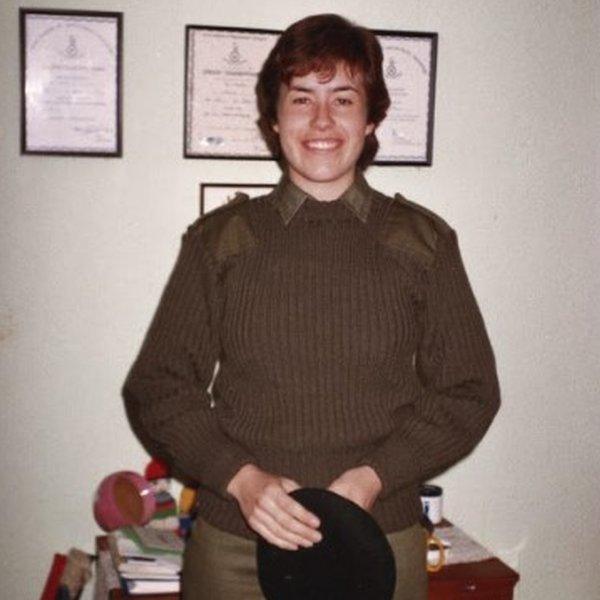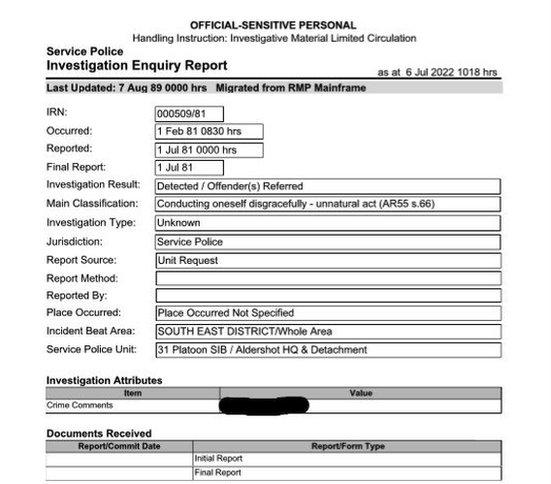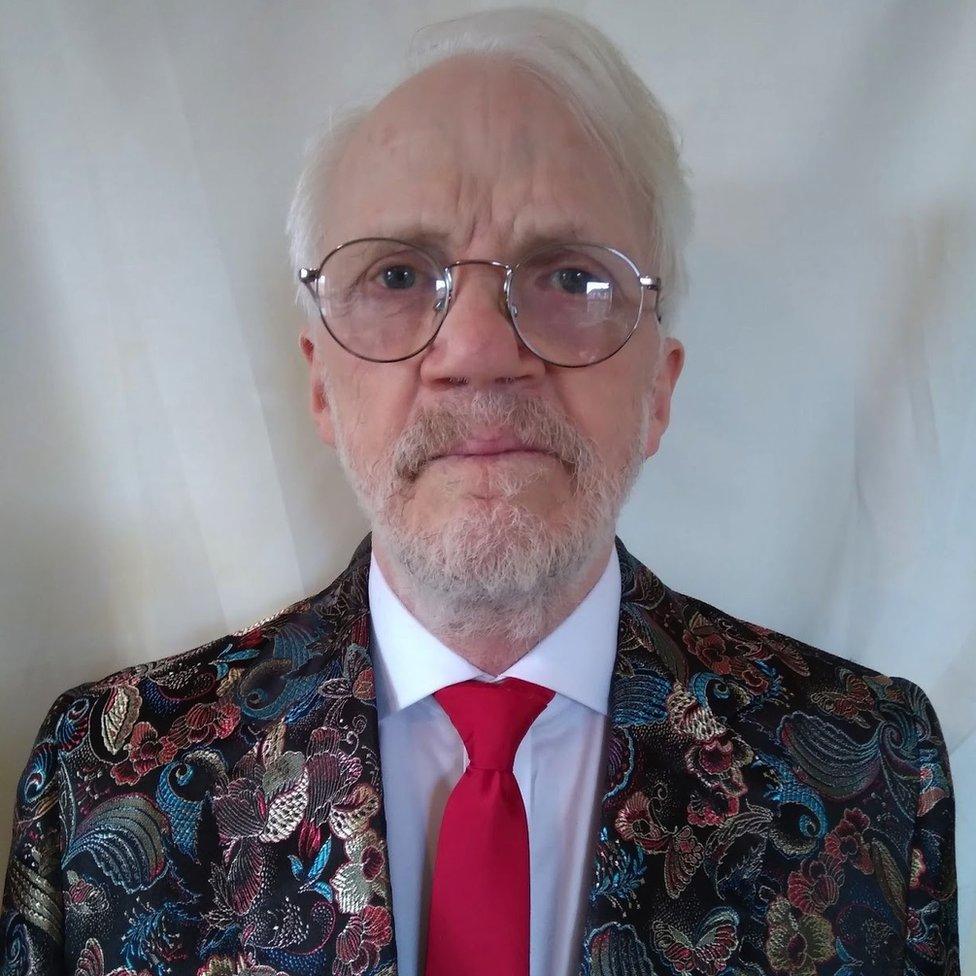Records of gay military sackings deleted by Ministry of Defence
- Published

Jean Macdonald was dismissed from the Armed Forces for being gay
Military police records of service personnel who were dismissed from the Armed Forces for being gay have been destroyed, BBC News has been told.
Veterans who requested documents about investigations and interrogations into them by the military police have been told the files were deleted in 2010.
The Ministry of Defence told the BBC it had a legal duty to ensure the details were erased from service records.
But one veterans' group said: "To many, this may feel like a cover-up."
The MoD only revealed the data had been destroyed after two veterans contacted BBC News to say they had been unable to obtain records of military investigations into their sexuality.
Campaign group Fighting with Pride said, without the information, it could be difficult for its members to reclaim lost pensions or compensation from the government.
Until 2000, people who were gay were barred from serving in the military. An independent review is currently looking at how the Armed Forces dealt with members of the LGBT+ community.
Full of shame
Jean Macdonald was a lance corporal in the Women's Royal Army Corps. But in 1981 she was dismissed from the service for being gay.
"All of a sudden you've lost your whole career, you've lost your friends, you've lost your accommodation, you know, your whole way of life - it's just full of shame," she told the BBC.
After years of poor mental health she was diagnosed with complex PTSD. And in May this year, she requested her complete service records from the MoD.

Jean Macdonald was a lance corporal in the Women's Royal Army Corps
Earlier this month, she received an email saying all record of the investigation into her by the Royal Military Police was destroyed in 2010. The email said it followed an order from the "Defence Police Chiefs' Council".
It added: "All investigations into offences relating solely to sexuality... were to be removed from our systems and deleted from the records of the affected service personnel."
A search of the service police database produced only one document, which detailed the reasons for her dismissal. It read: "Conducting oneself disgracefully - unnatural act."
Ms Macdonald said it left her feeling "invisible". "We're a bit of hidden history".

The reason for Jean Macdonald's dismissal was recorded as "conducting oneself disgracefully"
The BBC has also spoken to another veteran, who also discovered his Military Police Service record had been destroyed.
Tremaine Cornish, 66, was a private in the Royal Army Catering Corps, and also passed the All Arms Commando course. He joined at the age of 15 and was dismissed in 1977, having been accused of being homosexual.
It makes me furious
He said the Army "took away my life, my prospects, my sense of worth".
When he applied for his complete service records this year, he was also told papers relating to the police investigation were "safely and appropriately disposed of".
He was told it was done "in accordance with policing and data protection principles".
However, Mr Cornish said it reinforced "the institutional homophobia we were attacked with". "It makes me furious - furious about the state, furious about the institution, about the forces that we had signed up to."

Tremaine Cornish was a private in the Royal Army Catering Corps
In January this year, the government announced it was setting up an independent review to look into the impact of the military ban on members of the LGBT+ community.
Lord Etherton, who is leading the review, has begun gathering evidence and is likely to look at possible means of compensation.
A MoD spokesman said the "historical policy prohibiting homosexuality in the Armed Forces was abhorrent".
The spokesman added: "We deeply regret LGBT+ members serving in defence suffered injustice as a consequence. Our priority now is to understand the full impact of the historic ban and find appropriate ways to address the wrongs of the past.
"The policy followed at the time was to remove references to these former offences and investigations from service records. There was a legal duty to ensure these records were erased from individuals service records."
Fighting with Pride estimates that between 5,000 and 15,000 men and women may had been affected by the policy between 1967 and 2000.
Craig Jones, from the organisation, is now calling for an urgent meeting with the defence secretary.
"You can imagine what that looks like to people who will have a great deal of difficulty trusting the MoD and the government," Mr Jones told the BBC. He said the MoD needs to provide clarity about what it has done and why.

Have you been affected by the issues raised in this story? Share your experiences by emailing haveyoursay@bbc.co.uk, external.
Please include a contact number if you are willing to speak to a BBC journalist. You can also get in touch in the following ways:
WhatsApp: +44 7756 165803
Tweet: @BBC_HaveYourSay, external
Please read our terms & conditions and privacy policy
If you are reading this page and can't see the form you will need to visit the mobile version of the BBC website to submit your question or comment or you can email us at HaveYourSay@bbc.co.uk, external. Please include your name, age and location with any submission.